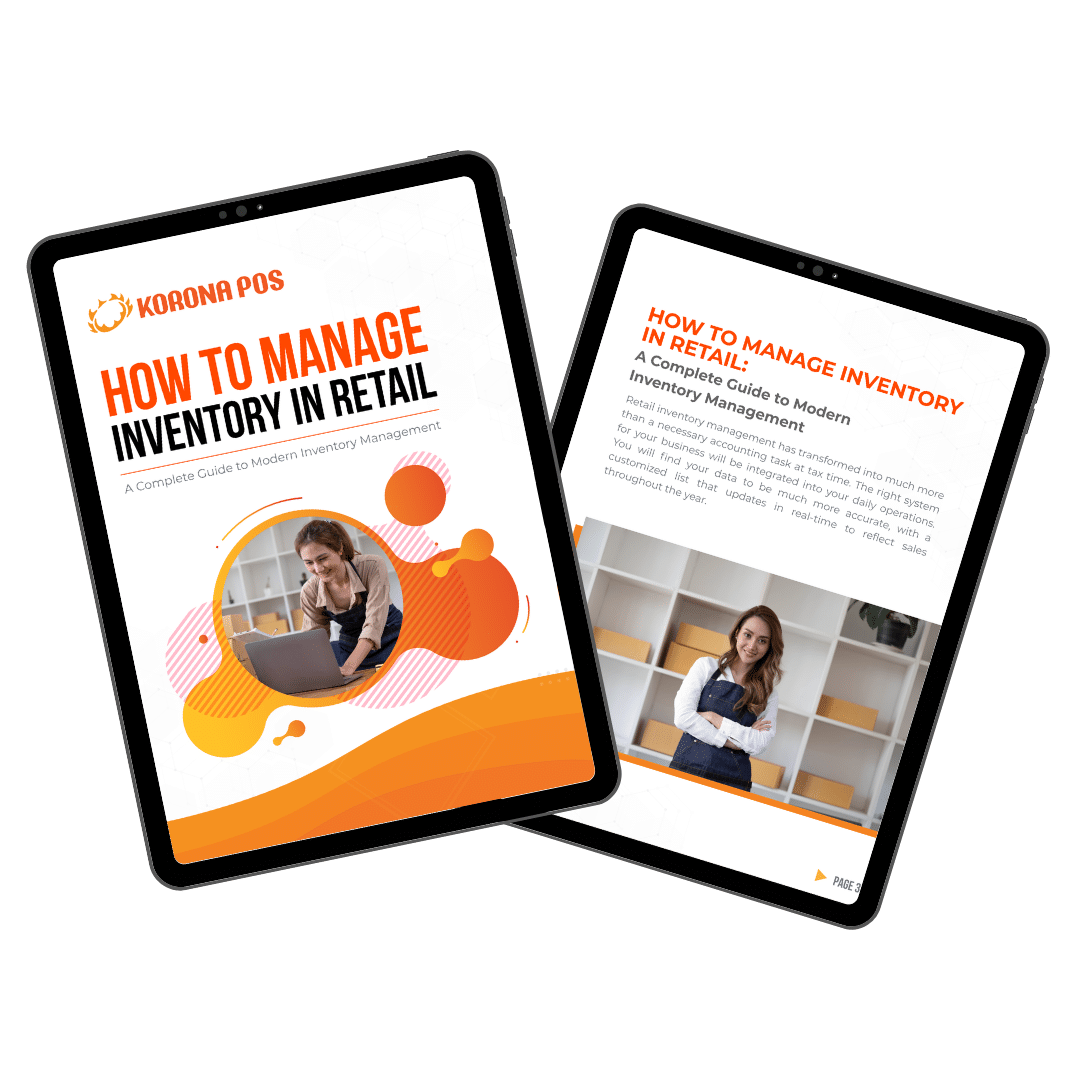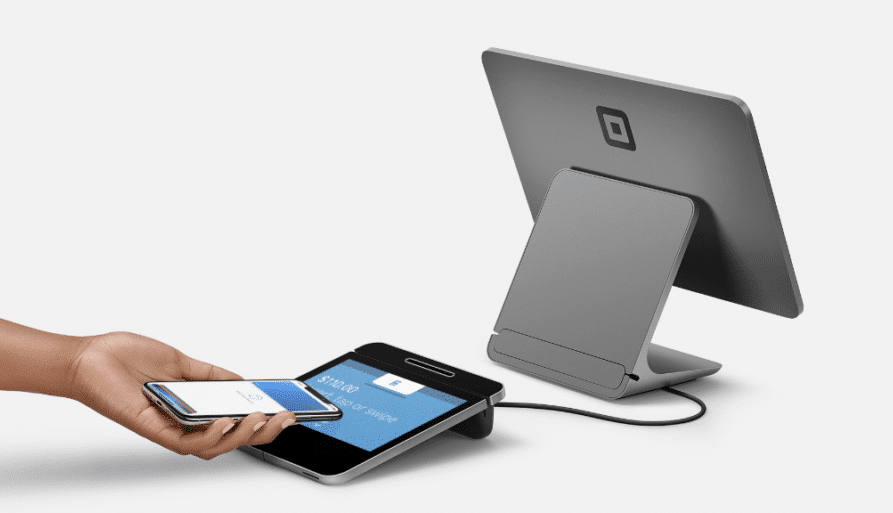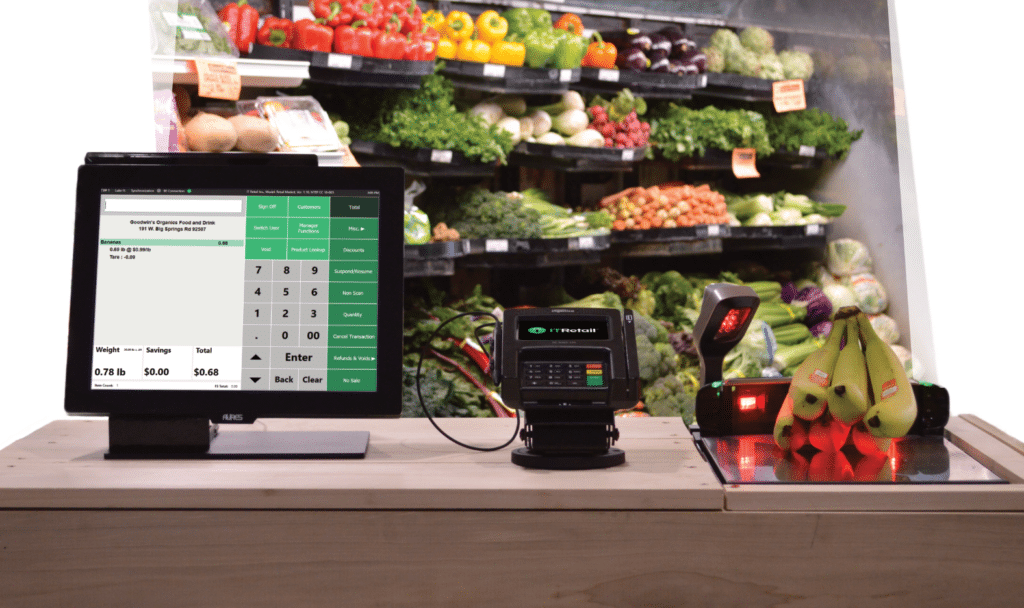Tired of grappling with the chaos of managing your retail business? If so, you’re not alone. From inventory mishaps to cumbersome sales processes, the challenges can seem endless. But fear not; your solution may lie within retail management systems.
In this article, we’ll delve deep into the intricacies of these systems, exploring how they streamline operations, optimize inventory management, and revolutionize customer experiences. We will navigate the landscape of retail management solutions, equipping you with the knowledge and tools necessary to transform your business into a well-oiled machine.
Key Takeaways: Retail Management Systems
- Retail Management Systems (RMS) streamline and optimize retail operations, addressing challenges such as inventory management and sales processes to create efficient workflows.
- RMS can vary from simple point of sale (POS) systems to comprehensive enterprise resource planning (ERP) solutions, catering to the needs of businesses of different sizes and complexities.
- Adopting an RMS offers numerous benefits, including improved operational efficiency, enhanced decision-making with detailed analytics, and personalized customer experiences through integrated CRM functionalities.
- When choosing an RMS, consider factors such as scalability, compatibility, user-friendliness, and robust features like inventory management, analytics, CRM, and multi-channel support, to ensure the system aligns with your business requirements and growth plans.
What is a Retail Management System?
A retail management system (RMS) encompasses a range of software solutions designed to streamline and optimize retail operations. For small businesses, an RMS often centers around a powerful retail point of sale system, which handles transactions, retail inventory management, and customer data. It is the primary tool for processing sales and managing day-to-day operations.
On the other hand, for larger enterprise businesses, an RMS may encompass more comprehensive enterprise resource planning (ERP) systems. These systems integrate various functions beyond inventory management like supply chain management, human resources, finance, and in-depth customer relationship management (CRM).
While POS systems are crucial for direct sales transactions, larger businesses often require ERP systems to manage all operations, providing insights and coordination across the entire enterprise.
Therefore, a retail management system can vary depending on the size and complexity of the retail operation.
Benefits of Adopting a Retail Management System
Retail management systems automate and streamline many aspects of running a business. In the contemporary retail domain, they are essential for businesses of all sizes.
Here are some key benefits:
- Efficient Operations: RMS automates tasks like inventory tracking, sales reporting, and customer relationships, reducing manual effort and minimizing errors.
- Enhanced Decision-Making: Detailed analytics and reporting capabilities provide valuable insights into sales trends, customer behavior, and operational performance. This access empowers retailers to make data-driven decisions.
- Optimized Inventory: Real-time inventory tracking and analytics help retailers make informed decisions, reducing stockouts, overstocking, and associated costs.
- Scalability: Whether for small businesses or large enterprises, an RMS can scale to accommodate growth, adapt to changing needs, and expand operations seamlessly. Cloud-based systems are poised to add new stores, channels, and products at the click of a button.
- Improved Customer Experience: With features like integrated CRM and loyalty programs, an RMS enables personalized customer interactions, increasing satisfaction and loyalty.
How to Choose a Retail Management System & Features to Look For
Choosing a retail management system involves assessing your business needs and considering features like inventory management, sales tracking, and integration capabilities. Evaluate scalability for future growth and compatibility with existing hardware and software.
Look for user-friendly interfaces and robust reporting tools to streamline operations. Consider vendor reputation, support options, and cost-effectiveness. Test demos and seek feedback from similar businesses to ensure a suitable fit that enhances efficiency and profitability.
Here are some more specifics to think about:
Feature #1: Inventory Management
Look for an RMS with strong inventory management features and functionality that go beyond basic tracking. Real-time data, automatic replenishment, and multi-location support ensure accurate stock levels and prevent stockouts.
With these advanced functionalities, businesses can stay ahead of demand fluctuations and minimize excess stock. Maximize sales opportunities while providing a seamless shopping experience for customers.
Feature #2: Analytics and Reporting
With detailed analytics, retailers can identify patterns, forecast demand, and make data-driven decisions to optimize operations and increase profitability. Robust reporting capabilities enable retailers to track key metrics, such as sales revenue, inventory turnover, and customer acquisition costs.
These metrics empower retailers to measure progress and identify areas for improvement. Accessing actionable insights through analytics and reporting is crucial for retailers to stay competitive.
Feature #3: Customer Relationship Management (CRM)
Consider an RMS with built-in CRM functionalities that manage customer information, track interactions, and offer advanced tools for segmentation and personalized retail marketing campaigns. By harnessing the power of CRM within your RMS, you can create targeted loyalty programs, send tailored promotions, and track customer feedback.
With these integrated features, retailers can go beyond transactional interactions, providing personalized experiences that resonate with customers and drive long-term loyalty.
Feature #4: Multi-Channel Support
Select an RMS that supports multi-channel retailing, encompassing online sales, in-store transactions, mobile commerce, and social media shopping.
By embracing a comprehensive multi-channel approach, retailers can meet customers wherever they are, offering a seamless shopping experience across various platforms. This integration ensures consistency in product availability, pricing, and promotions, fostering customer trust and loyalty.

Learn how to manage your inventory effectively with this free eGuide.
5 Best Retail Management Systems
While there are hundreds of RMS options out there, this blog will focus on four of the most popular options. Each serves a unique type of merchant. Remember, there is not one solution out there that fits every business. Instead, it’s important to find the best RMS for your specific needs.
1. Square POS: Best Free POS Retail Management Software

Square POS is an ideal choice for startup companies due to its simplicity, affordability, and robust features. Its intuitive interface makes it easy for businesses to set up and process transactions quickly.
With no upfront costs or monthly fees, startups can save on initial expenses while benefiting from essential POS functionalities like inventory management and sales reporting. Additionally, Square’s seamless integration with other business tools and reliable customer support further enhance its appeal to emerging businesses.
Who is it good for?
Square is a great option for new, single location retailers from coffee shops to salons and apparel retailers However, their payment processing is on the higher end, making it less than ideal for higher volume stores. Square also lacks some of the functionality needed for larger operations, including chains and franchises.
2. KORONA POS – Best Retail Management POS for Multi-Store Operations:
KORONA POS emphasizes strong multi-store management, making it an excellent choice for both chain and franchise businesses.
It boasts seamless inventory tracking, centralized data access, franchisee/franchisor management tools, and efficient product transfers across all stores. This access lets you control stock levels, optimize distribution, and ensure a consistent customer experience throughout your retail network.
Who is it good for?
KORONA POS excels in many retail verticals, including liquor stores, smoke shops, convenience stores, QSRs, and ticketing operations. This solution offers extensive RMS functionality and is not a great fit for businesses with relatively simple operational needs.
Get started with KORONA POS today!
Explore all the features that KORONA POS has to offer with an unlimited trial. And there’s no commitment or credit card required.
3. IT Retail: Best Grocery Management POS

IT Retail is goes beyond sales with features for perishables, age verification, and built-in employee scheduling. Their software is designed explicitly for grocers, ensuring deep industry knowledge and a user-friendly interface. This translates to efficient checkouts, optimized stock management, and valuable data insights to keep your grocery business thriving.
Who’s it good for?
IT Retail offers a customizable and scalable platform that suits the diverse needs of medium to large grocery businesses. The solution is also a great option for organic stores, wine shops, and specialty food stores
4. Microsoft Dynamics 365 Business Central: Best Enterprise Resource Planning (ERP) Software:
Microsoft Dynamics 365 Business Central goes beyond the scope of a typical retail POS system. It acts as a central hub, managing your inventory, finances, and customer relationships alongside your point of sale.
Their features allow businesses to track trends, automate tasks, and gain insights to optimize retail operations for better decision-making. With this real-time data and a unified system, retailers can predict customer demand, identify sales opportunities, and make data-driven choices that improve the bottom line.
Who is it good for?
Dynamics 365 tends to work with wholesale and enterprise retailers. Some of its clients include Herbelin watches, Moneysworth, Best Shoes, and Bodega Summerroca.
5. Brightpearl: Best Omnichannel ERP
Brightpearl is the ideal omnichannel ERP for retailers because it focuses on streamlining operations across all sales channels. It unifies inventory, order management, and fulfillment under one roof, eliminating data silos and ensuring a smooth customer experience.
Brightpearl boasts robust automation tools to free you from repetitive tasks. Its extensive integrations allow you to connect your favorite eCommerce platforms and marketplaces for effortless omnichannel commerce.
Omnichannel cohesion and optimization translate to increased efficiency, improved customer satisfaction, and the ability to scale a business seamlessly.
Who is it good for?
Brightpearl is especially useful for businesses with online touchpoints. The solution has a number of multichannel clients, including coffee brands, footwear retailers, fitness programs, and more.
FAQ: Retail Management Systems
A retail management system, or RMS, is a comprehensive software solution designed to streamline the operations of retail businesses. It typically includes inventory management, sales tracking, customer relationship management, and point of sale operations. Integrating these processes helps retailers optimize their operations, improve efficiency, and enhance customer satisfaction.
Retailers commonly use a variety of software solutions, including point of sale (POS) systems for transactions, inventory management software to track stock levels, and customer relationship management (CRM) software to manage customer data and interactions. Additionally, analytics software is often employed to analyze sales data and trends, aiding decision-making and strategizing. These software tools collectively assist retailers in managing operations, optimizing sales, and enhancing customer experiences.
Retail systems refer to the interconnected software, hardware, and processes retailers use to manage various business operations, including sales, inventory, and customer interactions. These systems typically encompass point of sale terminals, inventory management software, customer relationship management (CRM) tools, and other integrated solutions to enhance efficiency and optimize retail workflows. Ultimately, retail systems streamline operations, improve decision-making, and enhance the overall customer experience within retail environments.
RMS (Retail Management System) primarily focuses on managing day-to-day operations within a retail environment, such as inventory, sales, and customer data. ERP (Enterprise Resource Planning) is a broader system that integrates various business processes across departments, including finance, HR, manufacturing, and supply chain, providing a holistic view of the organization. While RMS is specialized for retail-specific needs, ERP is designed to streamline operations across the entire enterprise.
Conclusion
Managing retail operations, inventory, and customer experiences can be a daunting task. However, as explored in this article, retail management systems (RMS) offer hope, providing comprehensive solutions to streamline processes and boost efficiency.
By leveraging the power of RMS, retailers can transform their businesses into efficient retail operations equipped to navigate the complexities of modern commerce. With many options available, from robust POS systems to integrated ERP platforms, the path to retail success lies in embracing the right technology tailored to individual business needs.
For more information about KORONA POS and how it can help you manage your retail business, click below!











